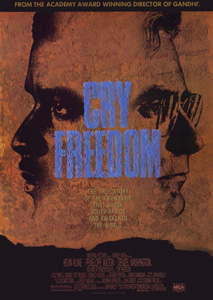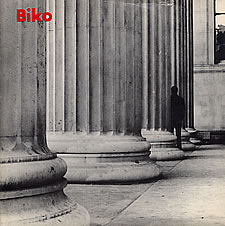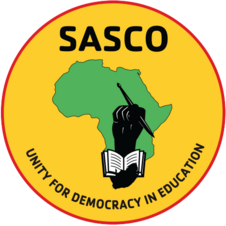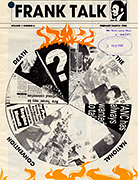
Bantu Stephen Biko was a South African anti-apartheid activist. Ideologically an African nationalist and African socialist, he was at the forefront of a grassroots anti-apartheid campaign known as the Black Consciousness Movement during the late 1960s and 1970s. His ideas were articulated in a series of articles published under the pseudonym Frank Talk.

Donald James Woods, CBE was a South African journalist and anti-apartheid activist. As editor of the Daily Dispatch, he was known for befriending fellow activist Steve Biko, who was killed by the police after being detained by the South African government. Woods continued his campaign against apartheid in London, and in 1978 became the first private citizen to address the United Nations Security Council.

Cry Freedom is a 1987 epic drama film directed by Richard Attenborough, set in late-1970s apartheid-era South Africa. The screenplay was written by John Briley based on a pair of books by journalist Donald Woods. The film centres on the real-life events involving black activist Steve Biko and his friend Donald Woods, who initially finds him destructive, and attempts to understand his way of life. Denzel Washington stars as Biko, while actor Kevin Kline portrays Woods. Cry Freedom delves into the ideas of discrimination, political corruption, and the repercussions of violence.
The Black People's Convention (BPC) was founded at the end of 1972 as the Nationalist Liberatory Flagship of the Black Consciousness Movement (BCM) in South Africa. The BCM was a product of three historicultural and ideological imperatives:

The Azanian People's Organisation (AZAPO) is a South African political party and a former liberation movement. The organisation's two student wings are the Azanian Students' Movement (AZASM) for high school learners and the other being for university level students called the Azanian Students' Convention (AZASCO), its women's wing is Imbeleko Women's Organisation, simply known as IMBELEKO. Its inspiration is drawn from the Black Consciousness Movement philosophies developed by Steve Biko, Abram Onkgopotse Tiro and Vuyelwa Mashalaba, as well as Marxist Scientific Socialism.

Mamphela Aletta Ramphele is a South African politician, a former activist against apartheid, a medical doctor, an academic and businesswoman. She was a partner of anti-apartheid activist Steve Biko, with whom she had two children. She is a former Vice-Chancellor at the University of Cape Town and a one-time Managing Director at the World Bank. Ramphele founded political party Agang South Africa in February 2013 and withdrew from politics in July 2014.

The Black Consciousness Movement (BCM) was a grassroots anti-Apartheid activist movement that emerged in South Africa in the mid-1960s out of the political vacuum created by the jailing and banning of the African National Congress and Pan Africanist Congress leadership after the Sharpeville Massacre in 1960. The BCM represented a social movement for political consciousness.
[Black Consciousness'] origins were deeply rooted in Christianity. In 1966, the Anglican Church under the incumbent, Archbishop Robert Selby Taylor, convened a meeting which later on led to the foundation of the University Christian Movement (UCM). This was to become the vehicle for Black Consciousness.

"Biko" is an anti-apartheid protest song by English rock musician Peter Gabriel. It was released by Charisma Records as a single from Gabriel's eponymous third album in 1980.
I Write What I Like is a compilation of writings from anti-apartheid activist Steve Biko.
The South African Students' Organisation (SASO) was a body of South African students who resisted apartheid through political action. The organisation was formed in 1968, spearheaded by Steve Biko, and played a major role in the Black Consciousness Movement.
The National Union of South African Students (NUSAS) was an important force for liberalism and later radicalism in South African student anti-apartheid politics. Its mottos included non-racialism and non-sexism.

Internal resistance to apartheid in South Africa originated from several independent sectors of South African society and took forms ranging from social movements and passive resistance to guerrilla warfare. Mass action against the ruling National Party government, coupled with South Africa's growing international isolation and economic sanctions, were instrumental in leading to negotiations to end apartheid, which began formally in 1990 and ended with South Africa's first multiracial elections under a universal franchise in 1994..

Nkwenkwe Nkomo of South Africa is the group deputy chairman of FCB SA, South Africa's largest marketing communication group, and chairperson of the Advertising Standards Authority (ASA) of South Africa. He also served as one of 12 elected volunteer members of the World Scout Committee, the main executive body of the World Organization of the Scout Movement. As an anti-apartheid student activist in the 1970s, he was one of the so-called "SASO nine" imprisoned on Robben Island for six years.
Neville Wilson Curtis was an anti-apartheid activist and leader of the National Union of South African Students.

The South African Students Congress (SASCO) is a South African student organisation currently led by Bamanye Matiwane as the organizations President. SASCO was founded in September 1991 at Rhodes University in Grahamstown, Eastern Cape, through the merger of the South African National Student Congress (SANSCO) and the National Union of South African Students (NUSAS). The predecessor of SANSCO, the Azanian Students Organisation (AZASO) was initially formed in 1979 as a continuation of the South African Students Organisation (SASO) when the latter was banned by the Apartheid government. SASO, in turn, got started by Steve Biko as a breakaway faction from NUSAS in the 1960s.
Dr. Maitshwe Nchuape Aubrey Mokoape was also known as a political anti-apartheid activist and a former leader of the Pan-African Congress and Black Consciousness Movement in South Africa. He was first arrested and detained at the age of 15.He studied and worked alongside political anti-apartheid activist Steve Biko. who was a founder and was elected president of the Black Consciousness Movement. In post apartheid South Africa he is now known as a physician and a soldier in the struggle for freedom.
Aelred Stubbs was an Anglican priest and monk, influential in the campaign against apartheid in South Africa during the 1970s.
Sathasivian "Saths" Cooper is a clinical psychologist in South Africa who was born in Durban of Indian-South African background. He began to identify with the Black Consciousness Movement (BCM) and joined the South African Students' Organisation (SASO), and was one of the so-called "SASO Nine" student leaders arrested in 1974 for their anti-Apartheid activities. During this time Saths spent nine years banned, house arrested and jailed, including over five years in Robben Island where he shared a cell block with Nelson Mandela.
Winnie Motlalepula Kgware was a South African anti-Apartheid activist within the Black Consciousness Movement (BCM). She was elected as the first president of the Black People's Convention (BPC), a BCM-affiliated community-based organisation in 1972.
Zanempilo Community Health Care Centre (ZCHC), infamously known as the "Biko Clinic", was the first primary health care centre initiative outside of the public sector in South Africa. It is located in Zinyoka Village, near King William's Town in the Eastern Cape. The clinic was established as one of the Black Community Programmes (BCPs) spearheaded by Steve Biko and Mamphela Ramphele.











